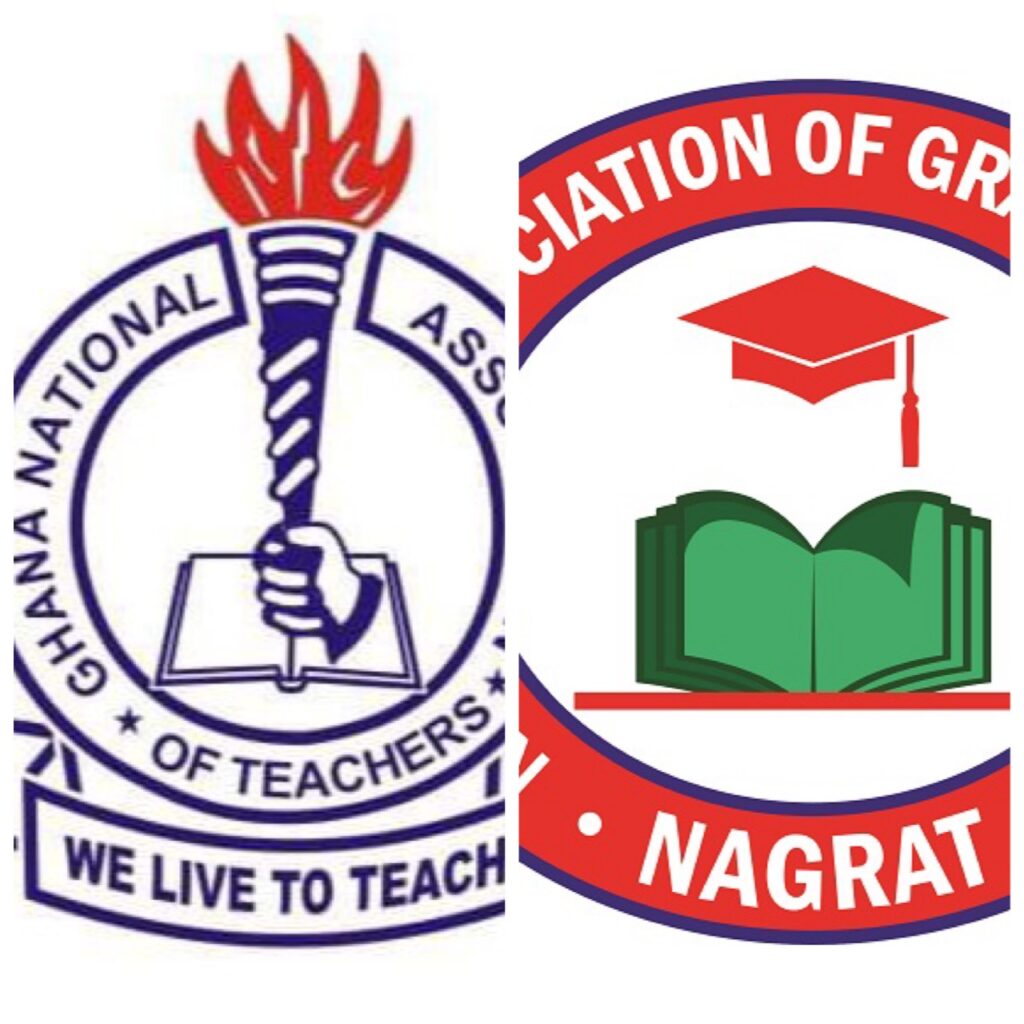As the strike by teacher unions in Ghana enters its second week, tensions between educators and the government have escalated, with union leaders issuing a scathing rebuke of government policies and priorities.
The unions, representing thousands of teachers across the country, have accused the government of neglecting the needs of educators and students, calling for urgent action to address systemic issues plaguing the education sector.”Set your priorities correctly,” declared leaders of the striking teacher unions in a joint statement, as they voiced their frustrations with the government’s handling of education-related matters.
From inadequate infrastructure to low salaries and poor working conditions, educators across Ghana have united in their demands for meaningful reforms and improvements to the state of education.
At the heart of the unions’ grievances is the perceived neglect of teachers’ welfare and the failure of the government to address longstanding issues affecting the profession. With classrooms overcrowded, facilities in disrepair, and resources scarce, educators argue that urgent intervention is needed to improve the quality of education and ensure that every child has access to a conducive learning environment.”We cannot continue to operate in an environment where teachers are undervalued and their contributions to society go unrecognized,” remarked Kwame Asante, spokesperson for the Ghana National Association of Teachers (GNAT). ”
It is time for the government to prioritize the needs of educators and invest in the future of our children.”Central to the unions’ demands is a call for increased investment in education, including funding for infrastructure development, teacher training programs, and the provision of essential resources for teaching and learning.
Educators argue that without adequate support and resources, they are unable to fulfill their duties effectively and provide quality education to students.”The government must allocate sufficient resources to education to ensure that every child has access to quality education,” stated Ama Mensah, a teacher and member of the Ghana National Association of Graduate Teachers (NAGRAT). “Without adequate funding, our schools will continue to struggle, and our students will suffer as a result.”
In addition to addressing infrastructure and resource deficiencies, the unions are calling for improvements to teachers’ working conditions, including better salaries, benefits, and opportunities for professional development. With many teachers struggling to make ends meet on meager salaries, union leaders argue that urgent action is needed to improve teachers’ standard of living and morale.”
We cannot expect our teachers to deliver quality education if they are struggling to make ends meet,” remarked Kofi Osei, president of the Coalition of Concerned Teachers (CCT). “The government must prioritize the welfare of educators and ensure that they are adequately compensated for their hard work and dedication.”
The strike by teacher unions has disrupted learning for millions of students across Ghana, prompting concerns about the long-term impact on educational attainment and outcomes. With exams looming and the academic calendar in jeopardy, parents, students, and community members have expressed frustration and anxiety over the ongoing labor dispute.”We are deeply concerned about the impact of the strike on our children’s education,” stated Yaa Ansah, a parent of two school-aged children. ”
We urge the government and the unions to resolve their differences quickly and return to the negotiating table in the best interest of our children.”As the strike continues, stakeholders are hopeful that meaningful dialogue and negotiations will pave the way for a resolution to the labor dispute.
With the future of Ghana’s education system at stake, educators and government officials alike are urged to prioritize the needs of students and teachers and work together to find a mutually acceptable solution to the ongoing crisis.
story filed by: Nana kwaku Duah





